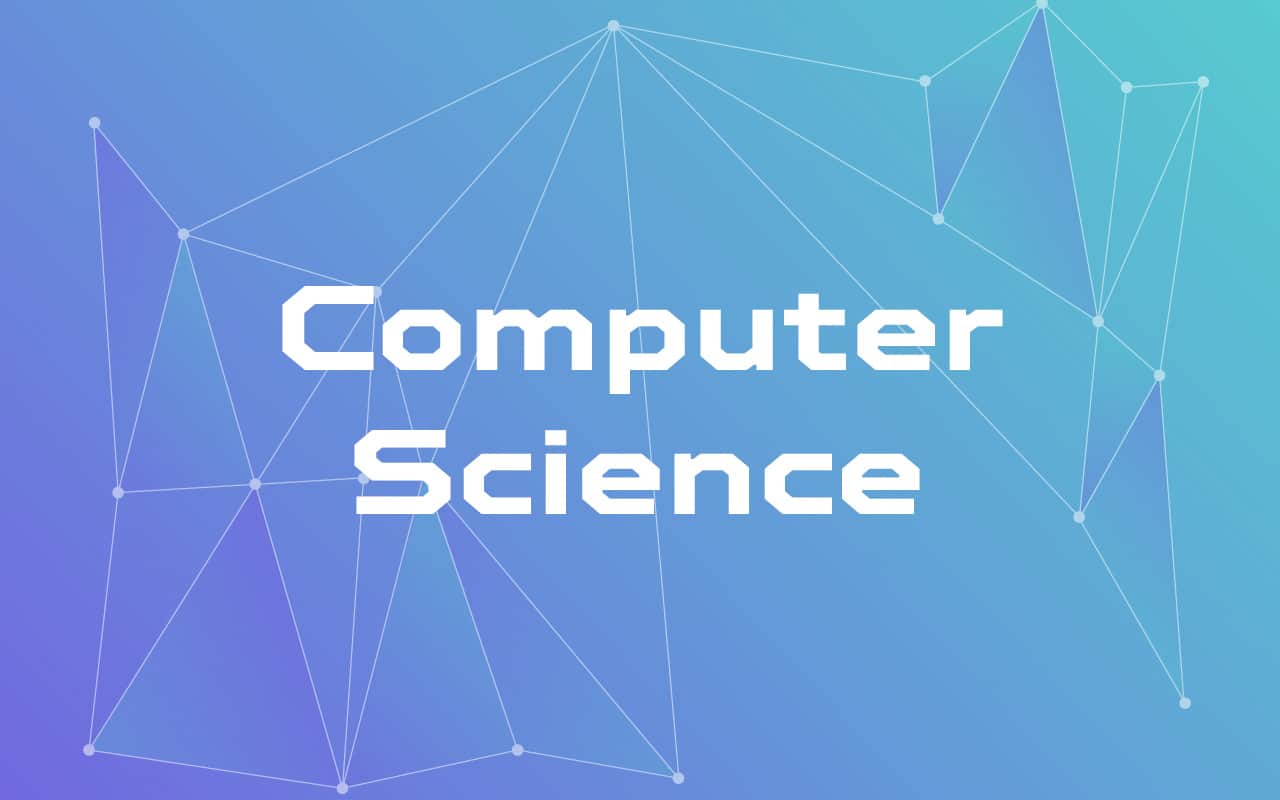Computer science is a field that can often seem intimidating and confusing to beginners. With its complex algorithms and technical jargon, it can be easy to feel overwhelmed and discouraged. However, understanding the basic concepts of computer science is not as difficult as it may seem.
In this guide, we will break down the fundamentals of computer science in a simple and accessible manner, making it easier for beginners to grasp. Whether you have a background in programming or not, this guide is designed to provide you with a solid foundation in computer science principles.
Throughout this guide, we will explain various concepts such as algorithms, data structures, and programming languages. We will demystify these concepts by providing real-world examples and practical applications, allowing you to see how they are used in everyday life.
By the end of this guide, you will have a clear understanding of the key concepts in computer science and be well on your way to becoming a proficient computer scientist. So, let’s dive in and demystify the world of computer science!
Understanding the Basics of Computer Science
Computer science is a field of study that focuses on the design, development, and analysis of algorithms, software systems, and computer hardware. It involves both theoretical and practical aspects, and encompasses a wide range of topics.
At its core, computer science is about problem-solving. It provides tools and techniques for approaching complex problems and finding efficient solutions. This problem-solving process involves breaking down problems into smaller, more manageable pieces, and developing algorithms to solve each piece. Algorithms are step-by-step instructions that guide the computer in solving a problem.
Computer science also involves the study of data structures, which are ways of organizing and storing data. Understanding how to structure and manipulate data is essential for efficient problem-solving in computer science.
Another important aspect of computer science is the study of programming languages. Programming languages are used to communicate instructions to computers. They provide a way for humans to express their ideas and designs in a form that computers can understand and execute.
Computer science also encompasses the study of computer architecture and organization. This involves understanding the physical components of a computer system, such as the central processing unit (CPU), memory, and input/output devices. Understanding computer architecture is important for designing efficient and reliable computer systems.
Additionally, computer science involves the study of computational theory, which explores the fundamental limits of computation. This includes topics such as formal languages, automata theory, and complexity theory.
In summary, computer science is a multidisciplinary field that involves the study of algorithms, data structures, programming languages, computer architecture, and computational theory. By understanding the basics of computer science, you can gain a solid foundation for further exploration and learning in this exciting field.
What is Computer Science?
Computer Science is a field of study that deals with the theory, design, and applications of computers and computational systems.
It involves understanding how computers work at a fundamental level, and exploring ways to solve complex problems using algorithms and data structures.
Computer science also encompasses the study of programming languages, software development, and computer hardware.
Theoretical Foundations
At its core, computer science is rooted in mathematics and logic. It draws from various branches of mathematics, such as discrete mathematics, algebra, and probability theory.
Theoretical computer science focuses on the formal analysis of algorithms and the limits of computation. This includes areas like computability theory, complexity theory, and cryptography.
Practical Applications
In addition to the theoretical foundations, computer science has countless practical applications. It plays a vital role in fields such as artificial intelligence, cybersecurity, data science, and software engineering.
Computer scientists develop innovative software and technologies that shape our modern world. They work on creating intelligent machines, improving communication networks, and analyzing vast amounts of data.
Computer Science is a dynamic field, constantly evolving to keep up with the rapid advancements in technology. It provides a solid foundation for a wide range of careers and offers endless opportunities for learning and growth.
The Importance of Computer Science
Computer science is a field that plays a critical role in our modern society. It encompasses the study of computers and the algorithmic processes that underlie their operation, as well as the practical applications of this knowledge.
One of the key reasons why computer science is important is its relevance to problem-solving. In today’s world, technology is integrated into almost every aspect of our lives, and computer science provides the tools and techniques to tackle complex problems effectively. Whether it’s developing software to automate tasks, designing algorithms to analyze large datasets, or creating systems to enhance communication, computer science is at the forefront of problem-solving in various domains.
Furthermore, computer science is essential for innovation and advancement. Many groundbreaking inventions and technologies have emerged as a result of computer science research and development. From self-driving cars to artificial intelligence, computer science continues to push the boundaries of what is possible and shape the future.
Another aspect of computer science that makes it important is its role in driving economic growth. In today’s technology-driven world, businesses rely heavily on computer systems and software to operate efficiently. The demand for computer science professionals continues to grow, and individuals with skills in this field are highly sought after by employers.
Moreover, computer science has a significant impact on various industries, including healthcare, finance, and entertainment. It enables medical professionals to streamline processes, improves financial analysis and forecasting, and provides innovative and immersive experiences in the entertainment industry.
Finally, computer science fosters computational thinking, a skill that is valuable in many fields beyond computer science itself. Computational thinking involves using logical reasoning, critical thinking, and problem-solving skills to break down complex problems and devise efficient solutions. This way of thinking can be applied in fields such as mathematics, engineering, and even everyday life.
In conclusion, computer science is incredibly important due to its relevance to problem-solving, innovation and advancement, economic growth, and its impact across various industries. Furthermore, it fosters computational thinking, which is a valuable skill in many different fields. As our world becomes increasingly reliant on technology, understanding and studying computer science is crucial for individuals and society as a whole.
FAQ:
What is computer science?
Computer science is the study of computers and computational systems. It involves the theory, design, development, and application of computer systems.
Why should I learn computer science?
Learning computer science can provide you with valuable problem-solving skills, as well as open up numerous career opportunities in fields such as software development, data analysis, cybersecurity, and artificial intelligence.
How can I start learning computer science as a beginner?
If you’re a beginner, a great way to start learning computer science is to take an introductory course or tutorial online. There are also many books and resources available that can help you understand the basics of programming, algorithms, and data structures.
What are some common misconceptions about computer science?
One common misconception is that computer science is all about programming. While programming is an important part of computer science, there are many other aspects to the field, including computer hardware, software engineering, algorithms, data analysis, artificial intelligence, and more.



[…] learning. It combines concepts and principles from various fields such as engineering, computer science, mathematics, and physics. This interdisciplinary approach broadens students’ knowledge and […]
[…] is an important concept in the field of linguistics and computer science. It refers to the study of meaning in language. Specifically, semantics focuses on how words and […]
[…] has applications in various fields, including physics, engineering, computer science, and biology. It can be used to study the properties of networks, analyze data sets, and model […]
[…] It is a multidisciplinary field that combines elements of mathematics, physics, biology, and computer science. Chaology seeks to understand and describe the behavior of complex and unpredictable systems, often […]
[…] 5. Provides a foundation for various careers such as engineering, finance, and computer science […]
[…] that has gained significant attention in recent years, especially in the field of mathematics and computer science. It is a term used to describe the study of graphs, which are mathematical structures used to […]
[…] Computational Thinking: Geometry plays a significant role in computer science and computer graphics. Algorithms used in digital imaging, animation, and computer-aided design […]
[…] have various applications in different fields, including science, engineering, finance, and computer science. In science, logarithms are used to measure the intensity of earthquakes and sound, as well as to […]
[…] Computer Science […]
[…] mazes are not only enjoyed for entertainment purposes but also used in fields such as game design, computer science, psychology, and […]
[…] Mereology can be applied to various disciplines, including physics, biology, mathematics, and computer science, providing a common language and conceptual framework for investigating complex systems and […]
[…] plays a crucial role in a wide range of fields, including computer science, sociology, biology, and economics. By studying networks, researchers are able to uncover patterns, […]
[…] How is ontology used in computer science? […]
[…] also known as API science, is a branch of computer science that focuses on the study and understanding of Application Programming Interfaces (APIs). APIs play […]